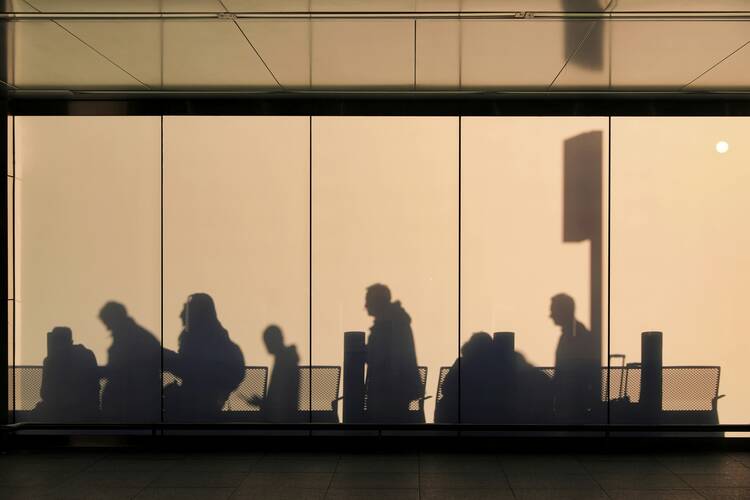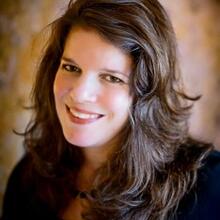Facebook has only recently started allowing anonymous posts and comments, and several groups I’m a member of are taking it hard. Is it good or bad for the group to let people post without revealing their true names? Not everyone agrees.
The benefits are pretty obvious, especially if it’s the kind of group meant for support and advice. For reference, I’m in groups for mothers of large families, women using natural family planning, Catholic women in perimenopause, women trying to exercise more, parents of diabetic kids and people with backyard ducks. People who post anonymously will frequently open by saying why they’re doing it: because friends or family are in the group, and their situation is private, or often because there’s something they really need to know, but they’re embarrassed to ask. There is a situation they need some insight on, but they’re ashamed that this is their life right now. Or they just need a prayer.
The drawbacks of anonymity are harder to define. Most of the groups I’m in don’t have a problem with people being overtly nasty or threatening while hiding behind anonymity, but the use of anonymity, even for more polite conversation, is still not popular with everybody. Why?
One woman explained it is because people still post asking for support, advice, clarity and prayer, but you never get to know them. You get little snippets of their lives and little fragments of their stories, generally in a time of crisis—and that’s it. Even if there is a follow-up, it won’t include the kind of details about their lives that help us bond with one another. You never get to enjoy one of those indisputably real online friendships that lasts years and years as you learn more and more about each other, and you certainly never win that cherished prize of the internet age: meeting online friends in person. One woman who was arguing that the moderators of one group should disable anonymous commenting said that it is preventing her from building community. The group had the potential to become a band of friends, but it was staying a loosely associated bundle of anonymous problems.
It is an understandable complaint! It is hard to spend the intellectual and emotional energy answering someone’s question when you know the relationship, such as it is, is not going to go anywhere. Interaction with other human beings takes something out of us, and it is normal and human to be more invested when you get something in return—not anything sinister or grasping, just wholesome goods like friendship and camaraderie.
But if you are going to be a member of a group—especially a group that explicitly calls itself Catholic—I think it is good spiritual practice to humbly accept other people’s anonymity, if that’s what they choose. It dovetails very nicely with our doctrine of the Communion of Saints: We are all bound together and responsible for one another, even in situations where there is no obvious or immediate reciprocity. Think of it as social asceticism: praying for the intentions of someone whose name you’ll never know; praying for an intention whose details will never be fleshed out, simply because praying is good and we want to be good.
More than that: I think it is good spiritual practice to accept the idea that, even as we are all bound together as brothers and sisters in Christ, we are all, to one degree or another, strangers to each other. That is true even of the people we’re most intimate with—spouses, parents, children, dear friends—and we should be wary of tying our prayer habits too closely to our affections.
We are supposed to pray not only for the people we’re intimate with, and the people we spend time with, but for the people whose paths happen to cross briefly with ours, and the people whose names we do not know. We are supposed to pray for the dead whose names we’re hearing for the first time, the invisible person being whisked past in an ambulance, people across the ocean, celebrities, apparent nobodies and for our ancestors who died and disappeared long before we were conceived. That’s the deal. That is what we’re supposed to do as members of the body of Christ.
Once we get used to the idea of chatting with and praying for Anonymous, entrusting all the details up to God with no personal emotional or social payoff in sight, then maybe it will be a little easier to pray for the person who thinks he is better than you and the person who has had good luck served up to her on a platter every day and doesn’t even know it and for the person you despise and the person who just doesn’t seem to be much of a person at all. Maybe, once we turn down the expectation of having some kind of personal stake, we’ll be more ready to pray for the person who voted for the wrong guy last election and for the person who won the election.
We really do need to pray for the person whose real identity and full story we do not know. Because that is everyone.
We are strangers to one another. We don’t know others’ burdens or others’ stories. We don’t know what it is like to be another person who has lived another life and has a whole different history and array of struggles and set of affections and prejudices they probably learned before they could even talk. We’re all anonymous.
But God, and he alone, really knows us, knows who we truly are and what we truly need. The goal is to spend our time on earth so that, when we enter heaven and see who is there, we will be so glad.








